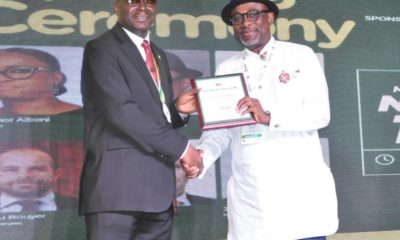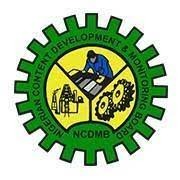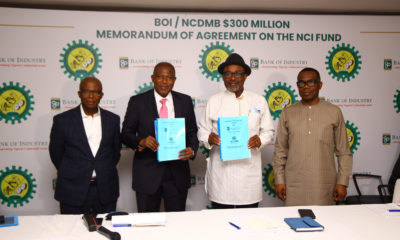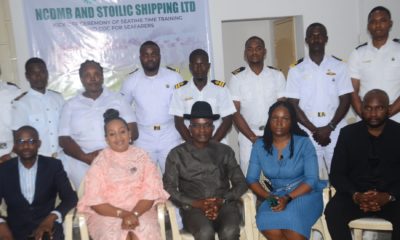Business
NCDMB, AFREXIM, APPO Chart New Funding Models For African Oil Industry
The Nigerian Content Development and Monitoring Board (NCDMB), African Petroleum Producers’ Organization (APPO),m and Africa Export-Import Bank (AFREXIMBank) have outlined new and sustainable models of funding oil and gas investments in Africa, using resources drawn from the continent and de-emphasizing international financiers.
The new pathways were some of the key outcomes of the African Local Content Investment Forum (ALIF) hosted by the NCDMB in Lagos on Monday and form part of the concerted efforts to overcome the decision of western nations and their financial institutions, and international operating oil companies to suspend funding of new investments in hydrocarbon projects because of their advocacy for energy transition and green energy.
The rally by African institutions is also intended to respond to the sustained push by western nations for Africa to abandon her hydrocarbon resources by attracting or deploying funding to the oil and gas industry and is coming on the heels of COP26 event held in Glasgow in late 2021 where leading advocates of energy transition made fresh commitments to curb methane emissions, align the finance sector with net-zero by 2050, ditch the internal combustion engine, accelerate the phase-out of coal, and end international financing for fossil fuels.
The Executive Secretary of NCDMB, Engr Simbi Kesiye Wabote in his welcome address, stated that the African oil-producing countries need to continue exploiting their hydrocarbon resources to fuel their developmental and economic activities, but their actions must be backed by an urgent strategy to address funding, investment, and technological challenges.
He argued that the challenge of inadequate energy is partly the reason why Africa is faced with poverty, conflicts, migration, brain drain and ranks very low on Human Development Index.
He suggested that the African Export-Import Bank (AfreximBank), which supports several oil and gas deals in the continent, the African Development Bank (AfDB), and other funds from Development Financial Institutions (DFIs) in Africa could be explored for funding hydrocarbon development projects. He also recommended that credible businessmen in the continent could also be motivated to pick interest in the industry, adding that “there must be a means of aggregating the various funds so that big-ticket funding transactions can be carried out.”
In his comments, the Secretary-General, African Petroleum Producers’ Organization, (APPO), Dr. Omar Farouk Ibrahim pointed out that a major study commissioned by APPO on the Future of the Oil and Gas Industry in Africa in the Light of the Energy Transition revealed that the oil and gas industry in Africa would need a new development model to survive the energy transition.
The new model would emphasize greater cooperation and collaboration among African oil and gas producing countries. He stated that: “the model shall also seek to emphasize a continental-wide approach to addressing the funding challenge, the capacity development challenge, the lack of cross-border and regional energy infrastructure challenge, the technology deficit challenge and the underdeveloped energy market challenge, using the African Continental Free Trade Agreement as an enabling vehicle.”
On sources of finance for energy projects in Africa in the absence of the traditional financiers, the APPO scribe recommended that various oil-producing countries should enact laws that provide for a portion of windfalls from oil and gas sales to be re-invested in the industry.
According to him, “we need to find ways of getting African oil and gas producing countries governments to commit a certain percentage of the windfalls to a special fund for the sustenance of the oil and gas industry during the transition period. A guaranteed source of revenue is the only guarantee for the success of the new order we want to see in Africa.”
Ibrahim added that revenue shall not come from the private sector alone because the issue is a matter of national security. He insisted that “none of the financial institutions operating in Africa today can afford to provide all the funds required for the oil and gas industry in Africa to operate and grow, and at the same time meet its original mandate.”
Acknowledging the impact of the global energy transition on investment philosophies of international operating companies and financial institutions, the Managing Director of AfreximBank, Dr. Benedict Oramah stated that African countries still rely on fossil fuels for growth and sustainable development, hence there is a need to continue financing oil and gas development in the continent to avoid destabilizing their economies.
The Managing Director who was represented by the Director and Head Advisory and Capital Markets, Mr. Ibrahim Sagna assured of the bank’s commitment to the African oil and gas sector, pointing out that it had extended loans to players in the industry to the tune of $5bn by the third quarter of 2021.
He said the bank would continue to finance economically viable oil and gas transactions and would work with stakeholders to explore the feasibility of the Africa Local Content Development Fund.
Minister of State for Petroleum Resources, Chief Timipre Sylva spoke at the event and said that sustainable funding is required in all aspects of the African petroleum industry, including upstream field development projects, pipelines, depots, terminals, refineries, petrochemical plants, and oil & gas research & development and training institutions.
He regretted that several regional development projects have been constrained by funding, including the West African Gas Pipeline (WAGP) and the Trans-Sahara Gas Pipeline (TSGP).
Represented by the Permanent Secretary, Dr. Nasir Sani Gwarzo, the Minister said the Africa Continental Free Trade Area agreement and its growth aspirations can only be actualized if the continent has a vibrant oil and gas sector, in view of the oil industry’s capacity to harness resources from other sectors.
Corporate Communications
March 10, 2022
Business
CSOs Urge Further Reduction Of Pump Prices Of Petrol
Following the marginal reduction of the pump prices of premium motor spirit (PMS) by the Dangote Petroleum Refinery and the Nigerian National Petrol Company Limited (NNPC Ltd), civil society groups have reacted by calling for further downward review.
Recall that the Dangote Petroleum Refinery had announced a partnership with MRS Oil and Gas to offer petrol at N935 per litre at retail outlets, while it reviewed the ex-depot price from N970 to N899.50 per litre.
The move, saw state oil major, the Nigeria National Petroleum Company peg its retail prices at N965/litre.
ALSO READ: Dangote Partnership: MRS Urges Nigerians To Insist On N935/Litre Petrol Price Nationwide
However, the civil society groups are of the opinion that the price reduction, fall short of expectations.
According to the Chairman, Centre for Accountability and Open Leadership, Debo Adeniran, the reduced price of N935/litre was still expensive and unsatisfactory.
He pointed out that petrol was just one of the products coming out of crude and that both government and private business could still give out free petrol to citizens while making huge profits from the other products.
In his words, “Well, we believe that if NNPC and the private sector actually give out PMS for free, they will still not run their business at a loss, because the other derivatives of petroleum products can still serve them, and can still make them to break even. So, even at that N900 and something, it’s still expensive.
“Dangote has kind of mooted the idea that it could drop to as low as N650. And if he has mulled this, then it means that it is the state, it is the NNPC that will have been the clog in the wheel of such progress. And you know also that we expected that fuel prices, especially PMS prices, will drop below N200 when Dangote was expected to come on stream.
“So, it’s unfortunate that we are still talking about over N900 and they want us to jump up and rejoice for that. That is not satisfactory. They should just let us see the breakdown of their production cost and why it’s still there. I mean, there are countries like Libya under Gaddafi that gave out PMS for free and they didn’t run anything at any loss. So, I believe that it can still go further down.”
On his part, the Executive Director of the Civil Society Legislative Advocacy Centre, Ibrahim Rafsanjani, commended the reduction of fuel prices by the NNPC and Dangote, but said the government could still reduce the price.
“Dangote’s own is about N899 or something like that. Well first and foremost, we are happy that there is a little reduction in the prices. But also based on analysis and based on facts and evidences, we believe that it is possible for the Nigerian government to further reduce the prices.
“Because if a private company can reduce the price and it still makes profit, we wonder why government-owned enterprises cannot really pity its citizens,” he said.
Business
Non-Oil Sector Fuels Nigeria’s Q3 2024 GDP Growth, Says CBN
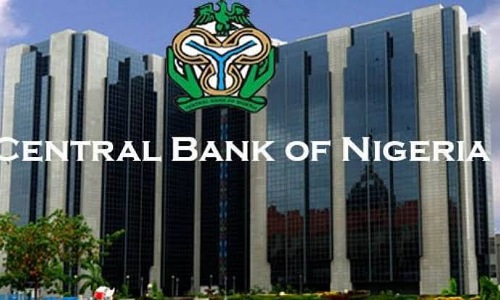
The Central Bank of Nigeria (CBN) has announced a significant growth in the country’s economy, with a 3.46% increase in gross domestic product (GDP) in the third quarter of 2024.
This marks the third consecutive quarter of expansion, up from 3.19% in Q2 2024 and 2.54% in Q3 2023.
According to the newly published Q3 economic report, Nigeria’s GDP output rose to ₦20.115 trillion, reflecting a notable improvement from ₦18.285 trillion in the previous quarter.
READ MORE: Tragic Funfair Crush In Ibadan Claims Children&’s Lives
The CBN attributed this growth primarily to the performance of the non-oil sector, which grew by 3.37% compared to 2.80% in Q2 2024.
The report highlighted transportation, crop production, and other sub-sectors such as financial & insurance services, information & communication, trade, and real estate as major contributors to the expansion.
The non-oil sector accounted for 3.18 percentage points of the total growth rate.
“The expansion of the non-oil sector was driven by the performance of the financial & insurance, information & communication, crop production, trade, transportation & storage, and real estate sub-sectors,” the report stated.
Despite the economic growth, challenges persist. Inflation, particularly in food prices, remains a significant concern, standing at 39.93% as of November 2024.
Rising food and energy costs have also impacted transportation expenses, with intercity bus fares increasing by 20.23% year-on-year to ₦7,117.17 in July 2024, according to the National Bureau of Statistics.
Furthermore, the cost of petroleum, now exceeding ₦1,000 per litre, has driven up logistics and transportation expenses, adding pressure to households and businesses alike.
The CBN acknowledged these challenges, noting that the growth was achieved despite headwinds such as high inflation and rising operational costs.
Enhanced security measures in the Niger Delta have boosted domestic crude oil production, while restrictive monetary policies have helped moderate inflation in some areas.
“The growth recorded in the country is a result of continued efforts to improve the business environment, streamline cumbersome business processes, and deepen the quality of business infrastructure,” the CBN noted.
However, the report comes amid concerns over businesses exiting Nigeria due to persistent economic challenges.
Business
CSR: Asharami Synergy Donates Furniture To Gaskiya Junior School
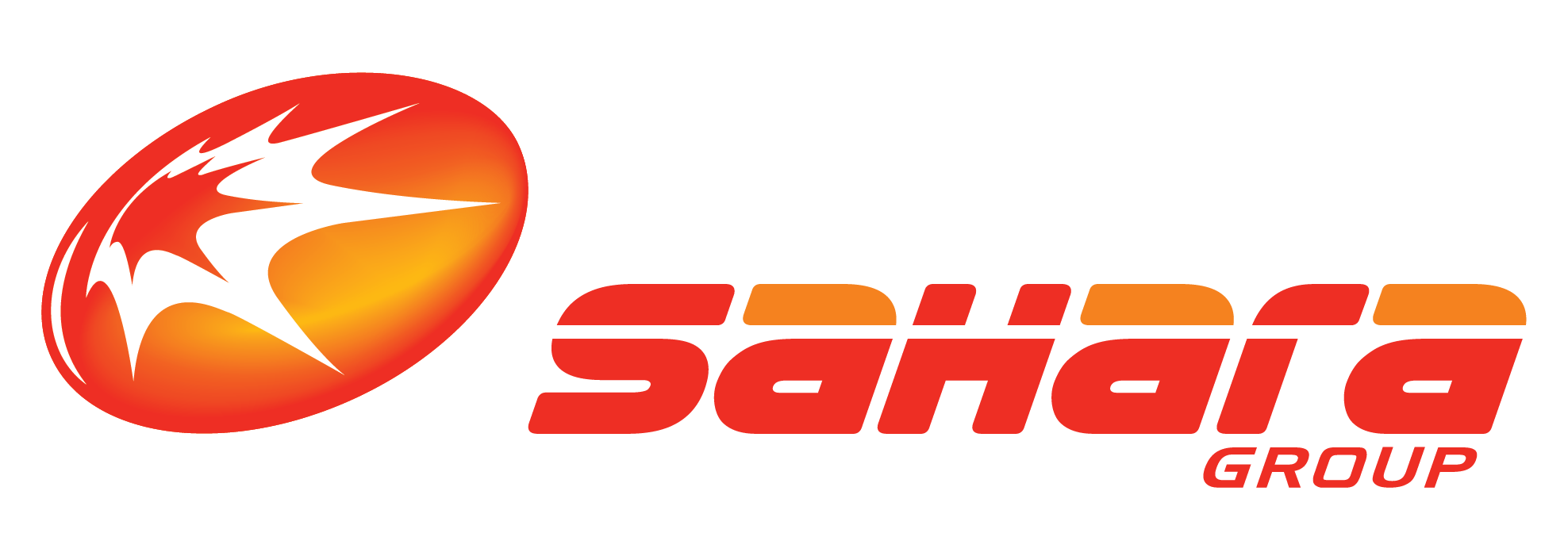
Asharami Synergy, a leading downstream energy solutions provider, has demonstrated its commitment to community development and education by donating essential furniture to Gaskiya Junior School in Ijora, Lagos, Nigeria.
Biztellers reports that the social responsibility initiative was executed in collaboration with Sahara Group Foundation – the social impact vehicle of global energy conglomerate, Sahara Group.
It was gathered that the initiative is part of Asharami Synergy’s ongoing efforts to support education in communities.
The donation includes classroom desks and chairs for the JSS1 classes.
ALSO READ: NCDMB Rewards Winners Of 2024 Edition National Undergraduate Essay Competition
CEO of Asharami Synergy, Nomnso Dike, said the project will create a more comfortable and functional learning environment and enhance student performance.
“We are delighted at the opportunity to support the attainment of Sustainable Development Goal (SDG) 4, which focuses on ensuring inclusive and equitable quality education. It has been a privilege to collaborate with the management and students of Gaskiya Junior School to deliver this project, and we look forward to future opportunities to enhance academic performance in this historic institution,” Dike said.
According to him, Asharami Synergy’s education-focused social impact initiatives have benefitted over 10,000 individuals. They focus on building capacity and providing the resources necessary to help students learn and grow sustainably.
“Education is the foundation of a brighter future, and at Asharami Synergy, we believe that every child deserves a learning environment that inspires and empowers them” he noted, adding, “This donation is not just about providing furniture; it’s a reminder to the students that their dreams are valid, and we are committed to helping them achieve their goals.”
Vice Principal Academic of Gaskiya Junior School, Sola Oladokun, commended Asharami Synergy for the donation, noting that it would inspire students to perform better with “increased concentration and fewer distractions”.
“These desks and chairs are a game-changer for our students. It’s heartwarming to see their excitement, and as teachers, we are equally thrilled because this will make teaching and learning more effective. We are incredibly grateful to Asharami Synergy and Sahara Group Foundation for this thoughtful intervention,” she added.
Two representatives of the students, Akin Moses and Chukwudi Gift, at the event said the donation would increase their “desire to dream bigger and concentrate better during lessons”.
Also speaking at the commissioning, COO at Asharami Synergy, Adekanmi Adesola, said, “What started as an opportunity to support the communities that host our operations has now come full circle. This donation directly impacts the lives of these students, and we are proud to bring smiles to the faces of the students and teachers.”

